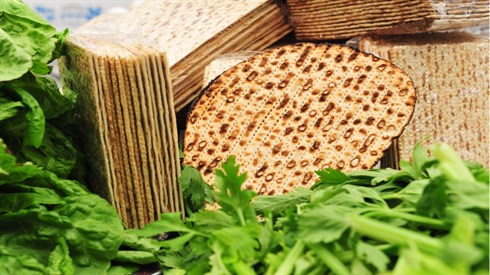- Sections
- Bemare Habazak - Rabbis Questions
74
Answer: I imagine your question is about how to explain the phenomenon that we spend time raising children that we could be spending on various mitzvot. The fact that all normal Jewish (and non-Jewish) families will continue toiling over their children is a given. Your question presents a wonderful opportunity to (telegraphically) discuss basic principles of avodat Hashem before looking at the specific sources you seek.
Mitzvot are the highlights of our life, into which we need to learn how to incorporate undeniable realities, both mundane and special. Hashem made the world in such a way that we must eat, sleep, go to the bathroom, bathe, etc. These are not mitzvot in the classic sense, but Hashem certainly wants us to partake in them. They are so obviously a part of our life that they do not need to be commanded.
Let us illustrate with a famous pasuk – the source of the mitzva to recite Birkat Hamazon. "You shall eat and you shall be satiated, and you shall bless Hashem your G-d for the good land He gave you" (Devarim 8:10). The pasuk contains three grammatically identical verbs. Why did Chazal not derive a mitzva to eat and one to be satiated? The answer is that we eat enough food because that is normal for a person, which Hashem created us to be. If we need confirmation that Hashem wants us to do this and not be ascetics, note the p’sukim from the second section of Kri’at Shema (Devarim 11:13-15). We keep the mitzvot of the Torah, Hashem brings rain, and our crops grow and are harvested. This section describing the ideal situation ends with "you shall eat and be satiated." Similarly, when one is busy with work, another proper non-mitzva, he is exempt from constant involvement in mitzvot, whether learning Torah, visiting the sick, etc. (see Orach Chayim 156).
What is the Torah perspective on supporting children? A father (not mother) is required Rabbinically (not by Torah law) to support his children when they are small (see Ketubot 65b; Rambam, Ishut 12:14). So until the Rabbinical institution, did the average father not support his family? Consider the Torah-derived law (see Rashi, Shemot 21:3) that an eved ivri’s master must support his slave’s wife and children, obviously because the father/family breadwinner is at work all day for the master. But why should the master be required by Torah law to support them in lieu of the father when the father is only obligated Rabbinically? The answer is that the Torah left it to fathers to support their families because they are normal human fathers, and the Torah trusted that this would be the rule. The Torah expects a mother, who is technically not obligated, to provide food for her children if they do not have a father doing so. In the animal kingdom, they do this based on instinct; in humanity, the instinct is augmented by basic G-d-given morality.
The Torah expects parents to be involved with their children’s various needs, which is nobler and harder to delay than other needs. This justifies taking care of children before even such mitzvot before which it is forbidden to eat or work (see Shulchan Aruch, Orach Chayim 89:3; we do not find such limitations regarding caring for children). It justifies not pursuing other mitzvot that are not clearly incumbent upon us. (We hopefully learn a proper balance from our wonderful parents’ example.) Only if one has earned a deep relationship with his children can he expect success in raising them with a Torah lifestyle, which is the Jewish way since Avraham Avinu (see Bereishit 18:19). How the responsibilities of providing all of a child’s material, educational, and emotional needs are broken up between two parents, sometimes with help from their families and the community, depends on the time, place, and the individuals’ circumstances.

Ask the Rabbi: Taking a Different Object than Lost
Rabbi Daniel Mann | Adar 5785

Ask the Rabbi: “Cooked” and Sweetened Wine for Kiddush
Rabbi Daniel Mann | Tevet 5785

How Many Eggs Should be Boiled Together?
Rabbi Daniel Mann

Double Wrapping Food in a Treif Oven
Rabbi Daniel Mann | Kislev 4 5777

That a Cohen May Not Marry a Divorcee
Rabbi Shmuel Holshtein | 5769

Mourning Customs During the Omer
Rabbi Eliezer Melamed | 5764

Mourning Customs During the Omer
Rabbi Eliezer Melamed | 5764

Prayer for Redemption and Blessings for Mashiach
Rabbi Avraham (Abe) Abrahami
Daf Yomi Sanhedrin Daf 113
R' Eli Stefansky | 11 Nisan 5785
The Sacrificial Service: Coming Close
Rabbi Moshe Leib Halberstadt | 6 Nissan 5785










